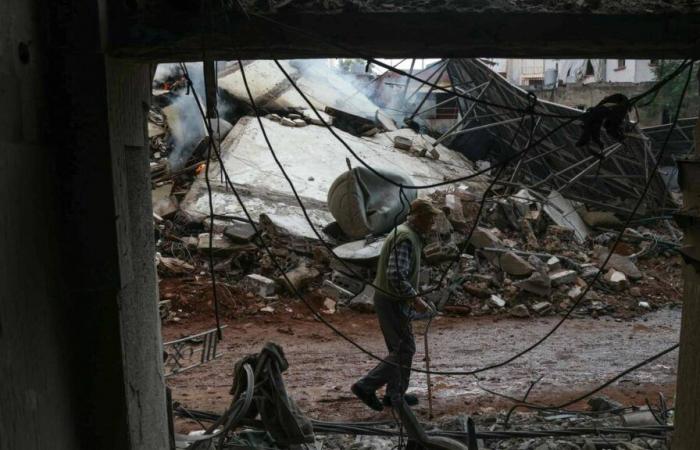Published on November 24, 2024 at 10:52. / Modified on November 24, 2024 at 12:01.
Saturday 4:15 a.m., a series of strikes wakes Beirut with a start. Across the capital, residents are worried that the bombing fell too close to home. Basta el-Faouqa, one of the most densely populated neighborhoods in the city center, was hit. According to local media, these are “bunker busters” – munitions penetrating underground before detonating – which have just been dropped. This would be the third time since the start of the war that the Israeli army has used them. The last two killed Hassan Nasrallah, the leader of Hezbollah, then Hachem Safieddine, his successor.
This strike left at least 20 dead and 66 injured according to a provisional report from the Ministry of Health published in the evening. The death toll increases as research continues. All that remains of the eight-story building is a huge crater to which the Lebanese army blocks access. Some bodies were found under the rubble. Other victims are expected to be identified based on DNA tests carried out on remains found by rescuers.
Want to read all of our articles?
For CHF 29.- per month, enjoy unlimited access to our articles, without obligation!
I subscribe
Good reasons to subscribe to Le Temps:
- Unlimited access to all content available on the website.
- Unlimited access to all content available on the mobile application
- Sharing plan of 5 articles per month
- Consultation of the digital version of the newspaper from 10 p.m. the day before
- Access to supplements and T, the Temps magazine, in e-paper format
- Access to a set of exclusive benefits reserved for subscribers
Already have an account?
Log in
World






